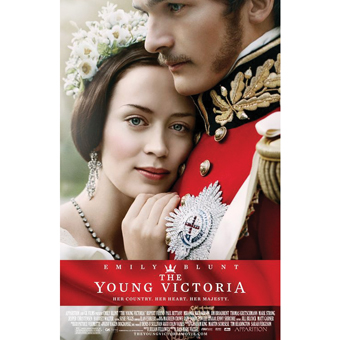Stories about Queen Elizabeth I make extraordinary drama because her reign shattered the patriarchal myth that ruling a kingdom was a man's job.
But Elizabeth, who proved a tougher monarch than nearly all the Henrys and Georges, held on to her throne by sacrificing her marital bed. Even she could not have both love and work.
Jean Marc Vallée's fetching period piece about Elizabeth's 19th-century successor explores the struggles of the young Princess and Queen Victoria (Emily Blunt) as she seeks to accomplish the double prize that eluded even Elizabeth's grasp: to rule England and to marry her beloved.
In the age of Victoria and Jane Austen, the fate and talents of modern women were bound by the marriages they made (or were drafted into), and even a princess is imprisoned in a network of social and royal customs ordained to thwart her will and heart.
But Victoria, raised in privileged isolation, is made of sterner stuff than one might expect from a hothouse princess, and her teenage highness resists every attempt to control and manipulate her. Still, once the adolescent ascends the throne, older and cleverer hands find it easy enough to move her around the royal chessboard, drawing her into serious and dangerous missteps.
The young queen finds a friend, adviser, and beloved in her German cousin Albert, who is himself trying to negotiate love and politics in a rapidly changing world. That these two young people should find and care for each other is to be expected; that they should strengthen and challenge each other in a way that forged a more modern and equal marriage is an unexpected pleasure of this film.
Two centuries after Victoria, modern women still seek to balance lives of love and work, and the young queen is a reminder that privilege and affluence does not remove the challenge of this dual task-though forging a true partnership just might.















Add comment